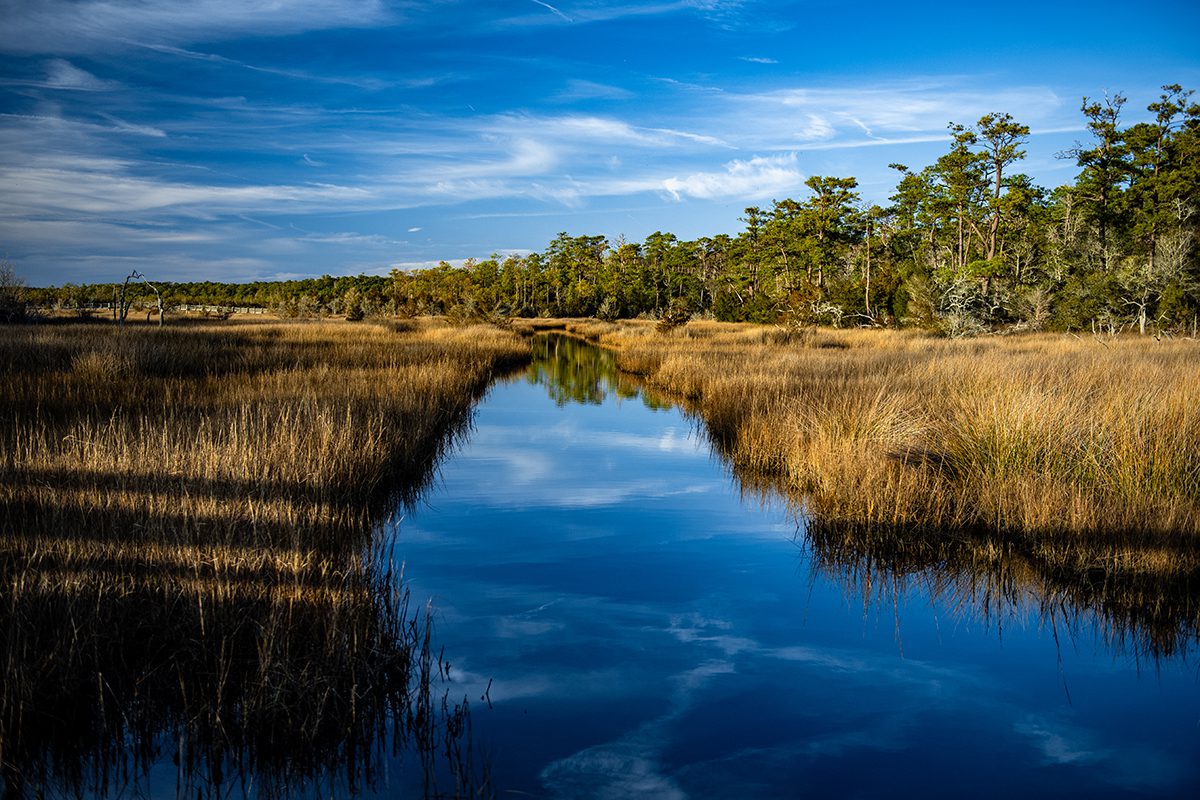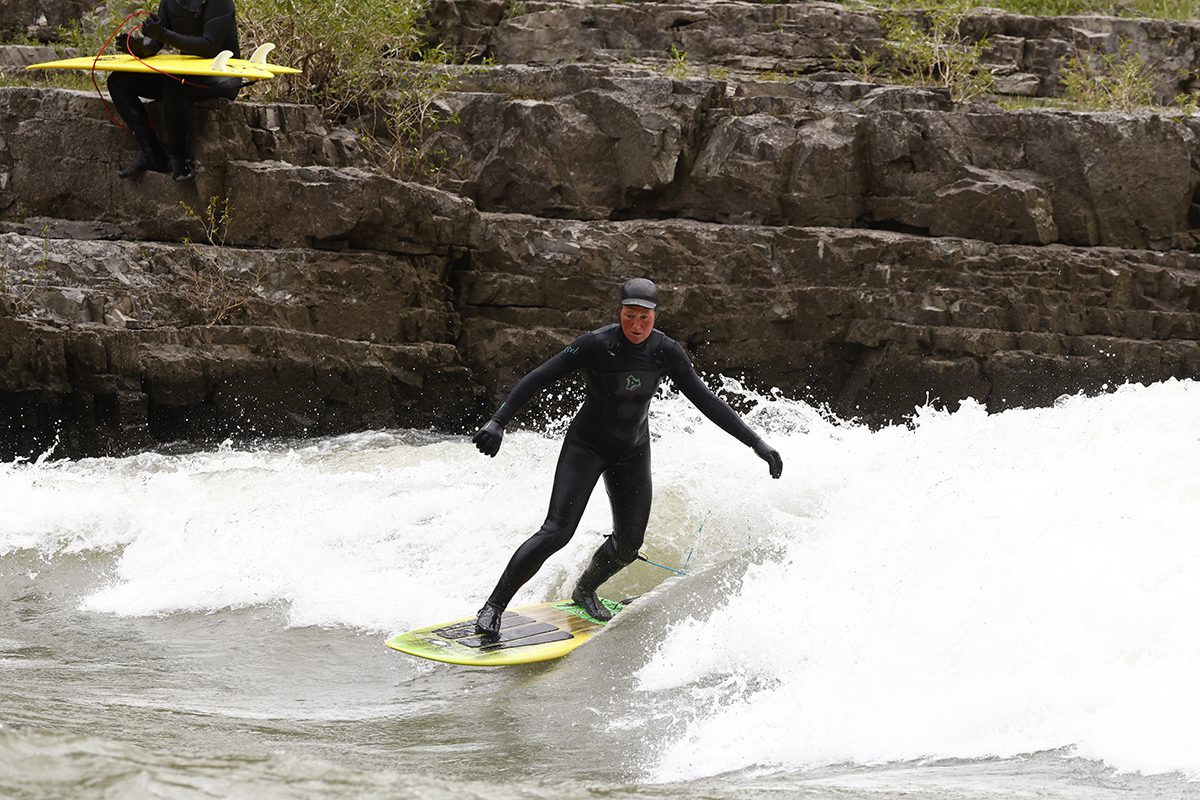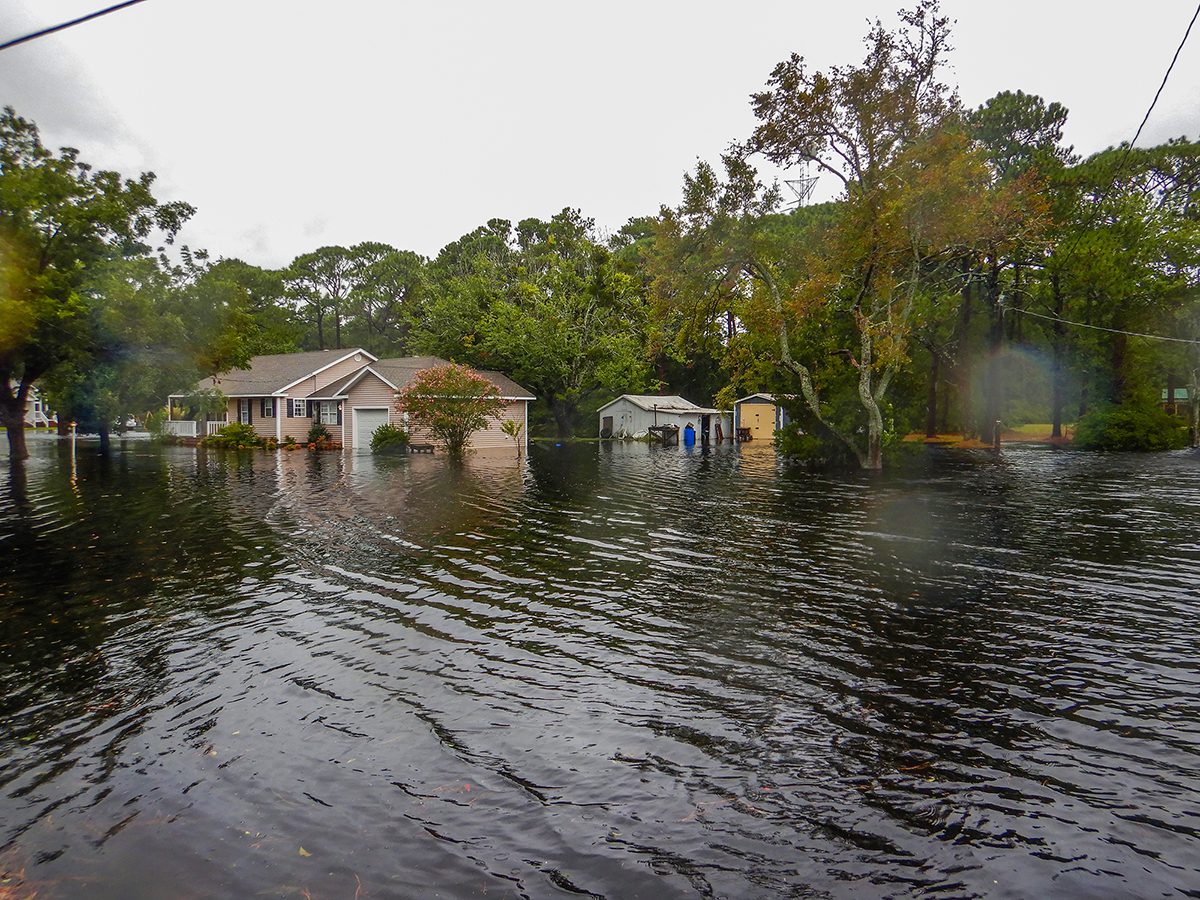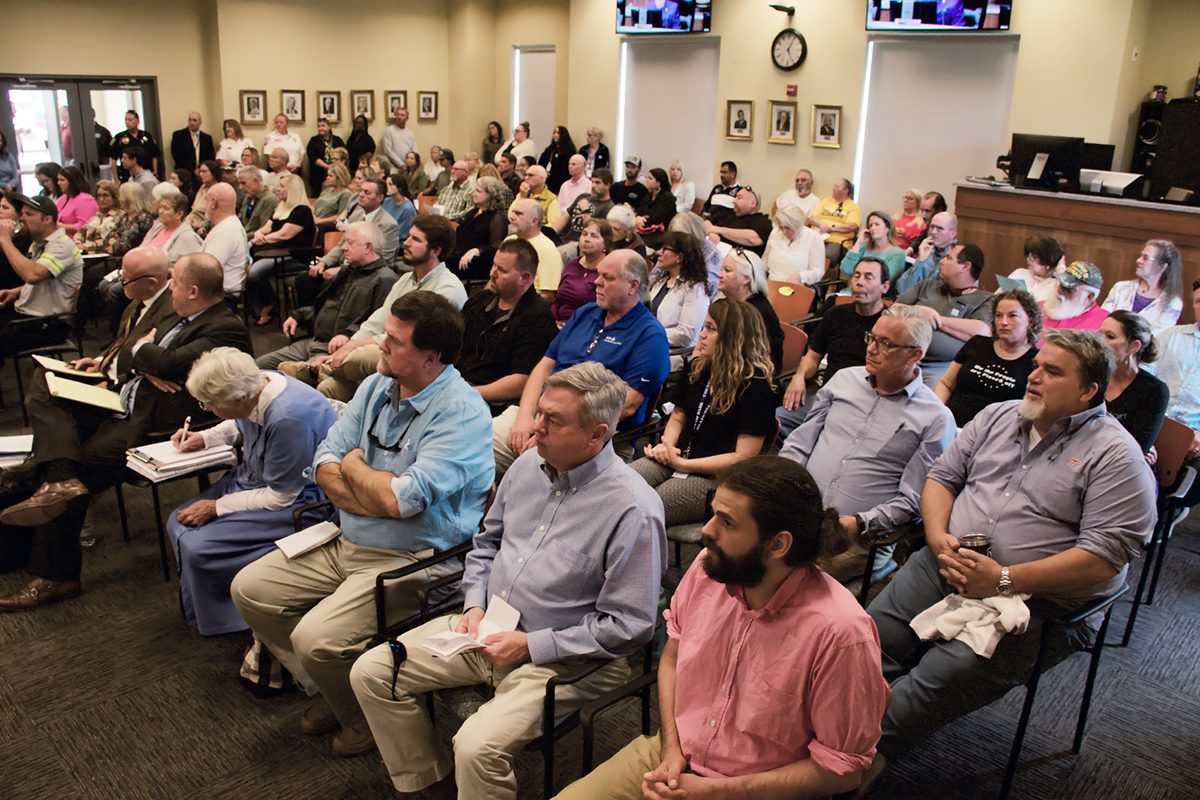
Correction: This report originally misidentified Justin Bateman of Wanchese.
Wanchese residents and others in Dare County say a proposed 60-unit cluster development at the intersection of Old Wharf Road and Brinkley Drive would forever change the coastal village’s tight-knit community character.
Sponsor Spotlight
Turnout was heavy Monday for the lengthy Dare County Board of Commissioners meeting in Manteo, where many spoke out during the public hearing against the requested special use permit for the development.
The board delayed its decision until next month to allow time for gathering more information, particularly regarding updates to a traffic study that had been conducted when there are far fewer vehicles than during vacation season.
In addition to traffic worries, those in attendance expressed concerns about whether the 10.5-acre site was suitable for the proposed density and about the adequacy of sewage treatment and stormwater management plans.
Issuance of a special use permit requires a quasi-judicial hearing in North Carolina and a vote to approve by, in this case, Dare County commissioners. But after five and half hours of discussion, commissioners voted instead to table the decision until the May 1 meeting.
Sponsor Spotlight
Developer Brad Alexander of Aria Construction & Development Inc. of Creswell was present for the hearing. His company has been active in Outer Banks construction for almost 20 years. During that time, Aria has built numerous single-family dwellings in residential areas of Dare County and rental properties as large as 7,000 square feet. But that history didn’t allay Wanchese residents’ concerns.
Several speakers addressed Alexander directly in their comments.
“After all this uproar and pushback from the community, why do you still continue to want to do this?” Asked Justin Bateman, the first speaker of the evening, who described himself as an “eighth-generation Wancheser.”
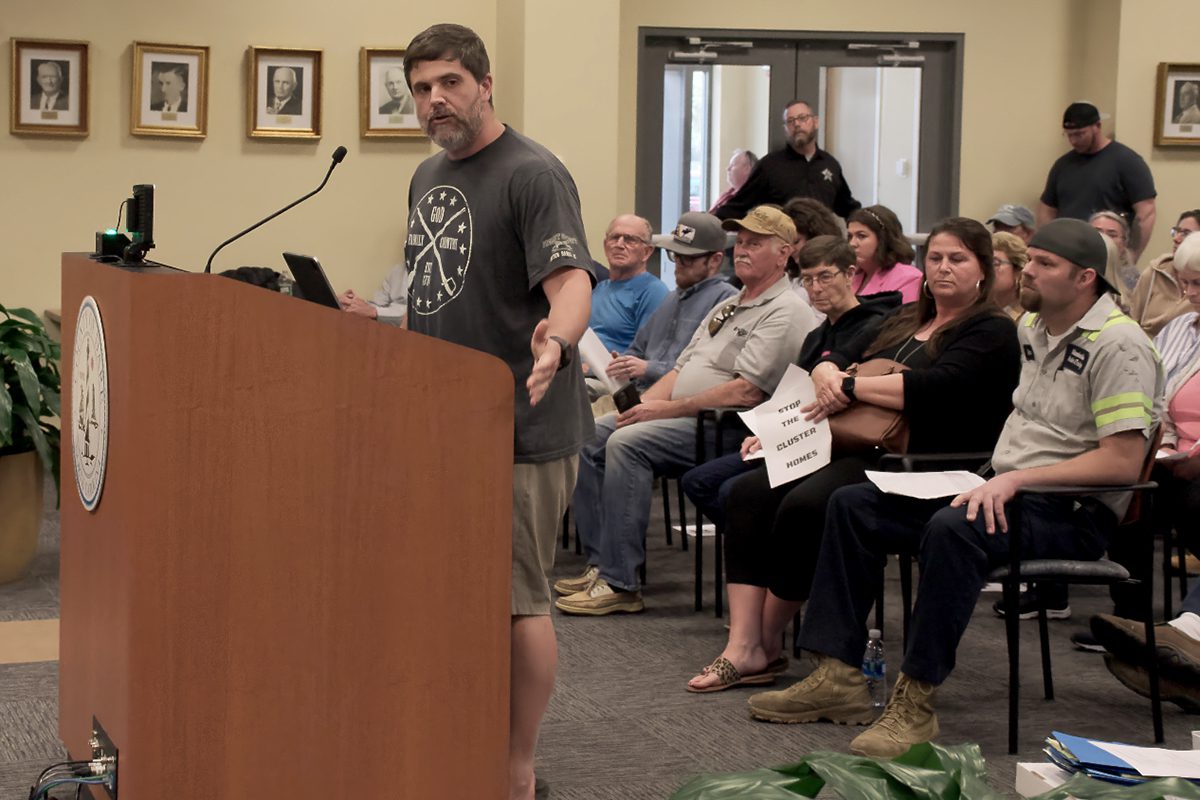
Residential cluster developments are seen as a way to maximize the number of homes possible in a limited space. Lot sizes are small, theoretically allowing for shared infrastructure and more efficient use of emergency services.
Often in suburban and rural communities, cluster developments have their own green space requirements. However, the Dare County cluster development ordinance includes no such requirement.
Alexander said his firm would retain a thin buffer of trees.
The proposed Villages at Old Wharf Road cluster home development features 36 two- bedroom homes at 960 square feet and 24 three-bedroom homes of 1,120 square feet.
Alexander said during the hearing that the two-bedroom homes would be tentatively offered at $299,000 and the three-bedroom homes at $399,000. However, he noted, prices could change due to market conditions.
Windsor attorney Lloyd C. Smith III, who represented Aria Construction, called a number of witnesses to the stand including the site engineer and the owner of the septic system that would be installed.
During the legal proceedings, Alexander was asked about the homes themselves and he pushed back on a recurring complaint that they were mobile homes on stilts.
Asked by Commission Chair Bob Woodard if the construction was to be “…just like other beach boxes…” Alexander was emphatic in his reply.
“They will all be stick-built houses,” he said.
In 2006, Dare County approved the Wanchese Village Residential Zoning District as a way to preserve the village feel of the unincorporated community. At that time, residents believed zoning would protect the village from overdevelopment.
Cluster development was added as a special use in the Wanchese district in 2018. Residents and representatives of the Wanchese Preservation Alliance claim the zoning change was put into place without the knowledge of the residents of the village.
Several at the meeting were worried that the proposed development site, which is now undeveloped, has poor drainage. Some voiced concern about stormwater runoff from the site and whether the on-site sewage system would pollute groundwater.
Smith, the attorney, asked site engineer Rick House to the podium to testify during the hearing about stormwater management and sewage treatment.
House said the planned stormwater collection system for the development would collect twice the amount of stormwater required by state regulations.
House also pointed out that the sewage system to be used for the development was a TS2 system that produced significantly cleaner effluent than a typical system used for a single home. The TS2 system uses drainfields more efficiently, he said.
Coastal Advocate and Environmental Economist Alyson Flynn based at the North Carolina Coastal Federation’s Wanchese office said during the public comment portion of the meeting that the state’s stormwater rules did not adequately address Wanchese residents’ flooding concerns.
“The North Carolina coastal stormwater program only regulates water quality impacts from stormwater runoff. The state program is not designed to protect people our property from being flooded … by this or any or future projects,” she said.
The Coastal Federation publishes Coastal Review.
Commissioners themselves did not raise specific concerns about the project until Jody Lewis, senior project manager at engineering firm VHB, presented his traffic analysis.
Chairman Woodard wanted to know how frequently and when the traffic counts for the study were done. When told that the counts included two days in February and another, March 1, Woodard and other commissioners expressed dismay about the timing.
“I would seem to think that we would have a lot different findings in May, June, July, August and September,” said Woodard.
Lewis agreed the timing would likely change the numbers.




